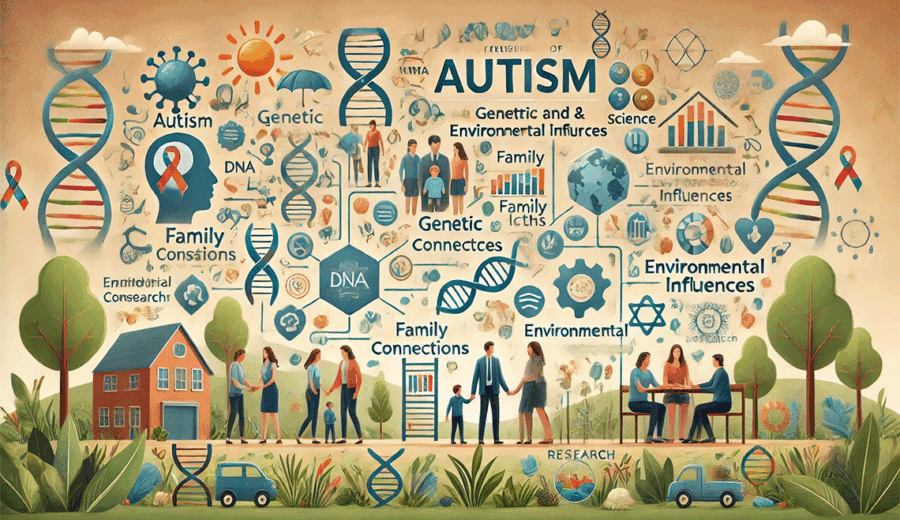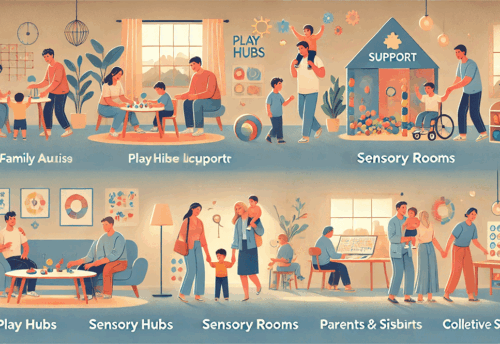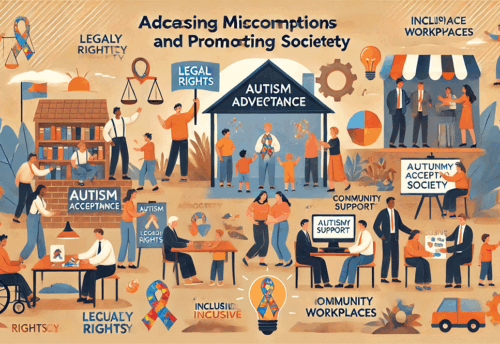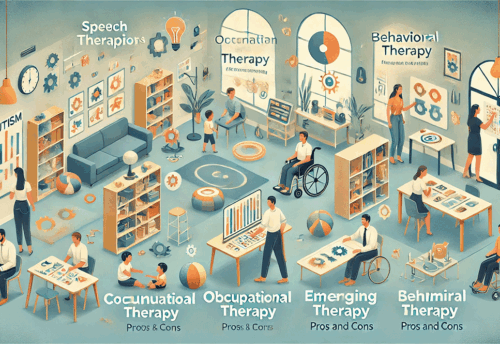
Causes and Risk Factors of Autism
Causes and Risk Factors of Autism
The causes of Autism Spectrum Disorder (ASD) are complex and involve a combination of genetic and environmental factors. While researchers continue to explore these aspects, the current understanding suggests that multiple influences contribute to the development of autism, and no single factor is solely responsible.
Genetic Factors
Research indicates that genetics play a significant role in autism. Certain genes are associated with the condition, and variations or mutations in these genes may increase the likelihood of developing autism. However, autism is highly variable, with no single “autism gene” causing the condition.
- Family Genetics: Autism can run in families. For example, if one child in a family is diagnosed with autism, there is an increased probability that a sibling might also be on the spectrum, though the presentation may differ.
- Gene Mutations: Specific genetic mutations have been linked to autism. Some of these mutations occur spontaneously, while others may be inherited. For example, changes in genes related to brain development can influence how neurons communicate, potentially contributing to the characteristics of autism.
It’s important to note that genetic factors alone do not determine autism but rather interact with various other influences.
Environmental Factors
Environmental influences are also part of the picture. Researchers are exploring factors that may affect brain development in ways that interact with a person’s genetic makeup, increasing the likelihood of autism.
- Parental Age: Advanced parental age, especially at the time of conception, has been associated with a slightly higher risk of autism. However, this association is complex and influenced by multiple factors.
- Prenatal Factors: Certain complications during pregnancy, such as exposure to certain chemicals or infections, may increase the risk of autism. For instance, research suggests that viral infections or exposure to pollution during pregnancy may contribute to autism risk in genetically predisposed individuals.
- Birth Complications: Complications during birth, such as low birth weight or oxygen deprivation, are being studied as potential contributors to autism. However, these factors do not necessarily cause autism but may be part of a combination of influences.
Addressing Myths and Misconceptions
Autism is often surrounded by myths and misconceptions, which can lead to misunderstandings and stigma. Here are a few common myths and the facts behind them:
- Myth: Vaccines Cause Autism
Fact: Extensive research shows no link between vaccines and autism. Vaccines, including the MMR vaccine, are safe and essential for public health, and multiple studies have confirmed they do not cause autism. - Myth: Poor Parenting or “Refrigerator Mothers” Cause Autism
Fact: Decades ago, autism was wrongly attributed to cold or unloving parenting. This misconception has since been thoroughly debunked. Autism is a neurodevelopmental condition, not caused by parenting style. - Myth: Autism Can Be “Cured”
Fact: Autism is a lifelong condition, and while individuals with autism may benefit from support and interventions, it is not something to be “cured.” Autism is part of a person’s identity, and support focuses on improving quality of life and fostering strengths.
Understanding the Complexity
Autism’s causes are multifaceted, involving a combination of genetic and environmental factors. Recognizing that autism has no single cause helps foster compassion and understanding. By addressing myths, supporting ongoing research, and embracing the diversity within the autism spectrum, we can create a more inclusive and informed society.





Leave a Reply